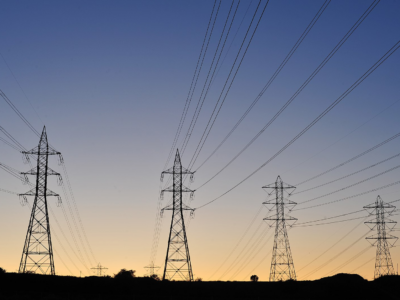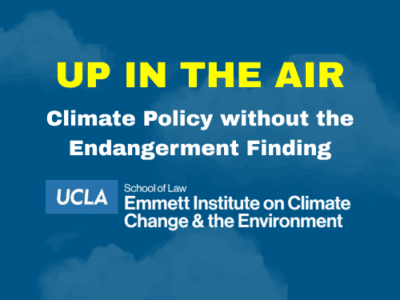Shouldn’t Conservatives Be Environmentalists?

It seems to me that the answer is yes, contrary to popular opinion. There are several varieties of conservatism, but in my view each of them should resonate with at least some aspects of environmental protection.
Let’s start with social conservatives. What does it mean to have a “culture of life”? Shouldn’t it mean objecting when companies emit pollution that causes large numbers of deaths, just to make a little extra money? It’s true that the company doesn’t actually desire to cause the deaths, but statistical evidence shows that air pollution in particular causes increased mortality on a large scale, just because so many people are exposed. If you’re “pro-life,” the idea of knowingly causing deaths in order to make money should be troubling.
Libertarians, it seems to me, should also resist the impulse to be reflexively against environmental regulation. Pollution is an invasion of the rights of victims to bodily integrity and protection of their property from harm by others. That’s why someone like Richard Epstein can be a libertarian and still see a role for pollution control.
What about traditionalists? Old-fashioned conservatives believe in maintaining traditions as the glue that holds societies together. Conservatives of this strip should be horrified by the destruction of endangered species and transformation of familiar landscapes by climate change. What is Vermont without maple sugar, or California without the snow-covered Sierras? What is America without bald eagles, redwoods, and fish in the ocean for the fisherman to catch? What is Florida without the Everglades?
Finally, there are freemarket economists. But as every econ student learns, markets don’t work well in the presence of externalities, and pollution is a classic case.
Of course, it’s quite possible that conservatives — like liberals — may find some environmental regulations to be unneeded or impractical. But this is no reason to approach the world with a presumption that environmental protection is bad. Thus, it should be no surprise that in a recent book, Newt Gingrich supports environmental protection and wants it to become a Republican cause. His solutions may not meet with approval from everyone, but he’s surely right that the basic goals of environmentalism should not belong to any one ideology or political party.
Reader Comments
2 Replies to “Shouldn’t Conservatives Be Environmentalists?”
Comments are closed.







The blog platform automatically generates “possibly related stories”. In this case, one of them was “Crucifixion: A Brief Historical Introduction”!
Many conservatives are “environmentalists,” but we need to recognize that supporting environmental protection and supporting environmental regulation are not the same thing. Just as one does not have to support preemptive wars to be a patriot, or support uncontrolled surveillance to support homeland security, one does not have to support command-and-control regulation, uncompensated regulatory takings, or centralized political control of those human activities that have substantial environmental effects. The challenge for conservatives (a challenge, admittedly, few have undertaken) is to articulate a vision of environmental protection that is consistent with traditional conservative principles, including limited government, free enterprise, and protection of property rights.
[My own effort to articulate such a vision can be found at: Free and Green: A New Approach to Environmental Protection, 24 Harvard Journal of Law & Public Policy 653 (2001)]
One other quibble, it is overly simplistic (if not simply false) that “markets don’t work well in the presence of externalities.” If that were the case, markets would not work at all, as externalities are everywhere. Indeed, Ronald Coase explicitly argued that the presence of externalities is not, in itself, a justification for government intervention. As he wrote in his introduction to The Firm, The Market, and the Law:
And let us also not forget that political action causes many “externalities” as well.
JHA